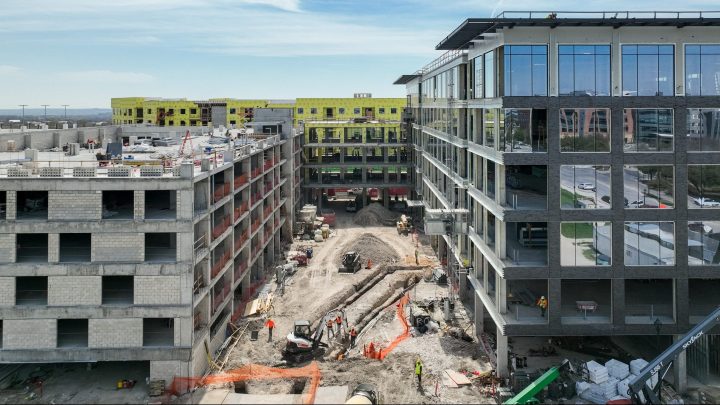
Supply of low-cost apartments dwindled over last decade, study says
Supply of low-cost apartments dwindled over last decade, study says

Low-cost apartments are getting much harder to find.
Nationally, the number of rental units that cost less than $600 a month fell by 3.9 million units between 2011 and 2021, according to an analysis from Harvard University’s Joint Center for Housing Studies. That’s adjusted for inflation.
The ultra-cheap housing stock declined in every state, but the drop was particularly sharp in places like Texas and North Carolina — states where renters from more expensive markets are moving.
Texas lost more than half a million low-cost rentals over the last decade. Meanwhile, the number of units charging over $2,000 a month tripled.
“When we begin to see naturally occurring affordable housing removed for development, the individuals that were living there have very few options on where to live,” said Joli Robinson with the Dallas-area homelessness agency Housing Forward.
Naturally occurring affordable housing is basically cheap enough for low-income people to afford it without a government subsidy.
“These tend to be older units, units in some cases that might not be particularly desirable in terms of the location or the kind of amenity value of those units,” explained Alex Hermann, a housing researcher at Harvard.
Hermann said some of those are being renovated or rehabbed to attract higher-income renters.
But many look just the same and are getting more expensive because there’s more demand, partly coming from Californians and others in high-cost states looking for cheaper housing.
“If you look at where the decline in the low-cost stock has been sharpest, it’s where rental housing used to be more affordable. So states like Arizona, Nevada and Texas,” Hermann said.
If you’re looking for a silver lining in all of this, you can find it in the more than 500,000 new apartments that were under construction last year, a multidecade high.
That should help relieve some rent pressures eventually, said economist Igor Popov at Apartment List.
“So what we have are thankfully some newer units coming online that will help us in 20 years,” Popov said.
Twenty years — not so much help for lower-income renters today.
There’s a lot happening in the world. Through it all, Marketplace is here for you.
You rely on Marketplace to break down the world’s events and tell you how it affects you in a fact-based, approachable way. We rely on your financial support to keep making that possible.
Your donation today powers the independent journalism that you rely on. For just $5/month, you can help sustain Marketplace so we can keep reporting on the things that matter to you.

















